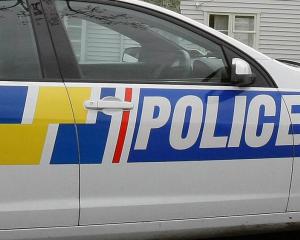The complex web of loans and investments associated with South Canterbury businessman Allan Hubbard took a new turn yesterday with the statutory managers revealing a private investigator may be used to track down some borrowers.
The Te Tua Charitable Trust comes in for much of the attention in the third salutatory managers' report, released yesterday.
The trust predominantly provided interest-free loans to farmers and business people starting out their business life.
The loans were usually repayable in equal instalments over a five to seven-year period, sometimes with initial repayment holidays of up to two years.
Mr Hubbard advised the statutory managers he had introduced about $25 million of Te Tua assets to Aorangi with the purpose of strengthening the Aorangi balance sheet.
One of the statutory managers, Richard Simpson, of Grant Thornton, said about $660,000 in loan repayments had been collected since June 20.
Te Tua made a repayment to Aorangi on Thursday of at least $600,000.
"We continue to encounter difficulties with the collection of loans and have insufficient records to allow us to contact some borrowers ..."
Mr Simpson said.
"Some borrowers are located overseas. We are proposing to use the services of a private investigator to assist with the tracing of these borrowers," he said.
A loan repayment programme for some non-performing loans had been negotiated and the number of negotiated repayments over the following months was expected to increase, he said.
Some loans would not be repaid because the borrower was either in liquidation or other lenders had already made demands.
Te Tua often had no security for its lending, leaving it in a compromised position if the borrowers defaulted in their repayments.
The managers were also encountering difficulties with some loan balances from earlier loan confirmation mail-outs.
There were other loans where the managers were dealing with several complex issues that related to advances and agreements with the borrower that would probably take legal advice or action to resolve, Mr Simpson said.
"For example, we have found issues where the full loan may not be repaid because of a verbal agreement reached by Mr Hubbard and the borrower," he said.
Finally, the managers had received rent payments for the last two months for a tenanted property owned by Te Tua for which no rent seemed to have been paid for the last 12 years, he said.
Discussions were being held with the managers' legal advisers and the tenant concerning the apparent arrears.
Mr Hubbard had offered to subordinate his own interest and make up any losses to investors but his equity interests in farms to charitable trusts, with associated loans and securities being granted in favour of Aorangi, needed to be unwound.
"It is clear to us that Aorangi's investment portfolio has a range of issues that will take considerable time to work through.
Aorangi investors are aware that their investments, in some cases, rank behind all other creditors of the businesses which Aorangi has invested in," Mr Simpson said.
Whether Aorangi investors would recover all their investment would depend on the loan and asset realisation process and the ultimate level of money Mr Hubbard had in Aorangi, he said.
Finalising the distributions could take several years, he said.
Payout
Investors in Aorangi Securities could receive capital repayment of up to three cents in the dollar later this month.
Statutory managers hope to distribute up to a further 20c in the dollar to Aorangi investors by the middle of 2011.
Te Tua
Te Tua owes about $25 million to Aorangi Securities.
The charitable trust has made loans, which are often poorly documented.
Aorangi Securities will suffer significant losses on its recovery of the Te Tua assets.
Work so far confirms there was little documentation on most loans, with little or no follow up with borrowers who did not meet their obligations.
Te Tua may be able to repay less than 50%.



